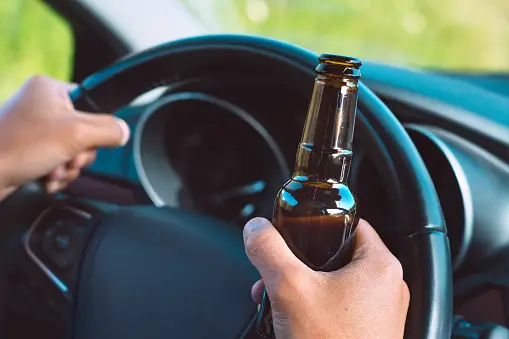- 520 E. Broadway #403 Glendale CA, 91205
- Talk to Us: (818) 662-5662
- email: info@naljianlaw.com

If you have been ticketed and/or arrested for driving under the influence of alcohol, (a “DUI”,) or your circumstances are much more severe, contacting a drunk driving lawyer immediately to protect all your rights can be very advantageous.
Police officers use various methods to determine whether a driver has had too much to drink, or is too intoxicated by some other means, to be driving. The most common methods include: Simple observation, a field sobriety test, or blood-alcohol test (breath, blood or urine).
While a simple observation test consists of studying the demeanor of the operator of a vehicle and determining whether the driver is intoxicated based on his general behavior is a very common method, an officer’s observations and conclusions are not always flawless or conclusive. A sobriety test includes what is referred to as an on-the-field test. The officer will instruct the suspected intoxicated driver of a vehicle to do several standard exercises, such as walking a straight line, counting, or reciting the alphabet, the purpose of which is to help the officer determine whether an individual is impaired or too intoxicated to operate a motor vehicle. A blood alcohol test usually requires a breathalyzer unit, which calculates the amount of alcohol in an individual’s blood by measuring the percentage of alcohol in the driver’s breath. A blood or urine test at a police station achieves the same purpose with greater accuracy by calculating blood-alcohol content by using a mathematical formula.
It is important to know what your legal rights are concerning a DUI. A drunk driving attorney has expertise in this specific area of law and would be able to help you protect your rights at every stage of the proceedings.
The penalties in drunk driving cases are particularly intricate. There are a set of penalty guidelines for various prosecutorial agencies to follow. Nevertheless, there are numerous factors that could change the outcome of the penalty, including: refusal to take the breathalyzer test, whether the driver has had a previous DUI or related conviction within the past seven years, whether the driver’s blood-alcohol content was greater than .15%, whether the driver was speeding or was involved in an accident, whether the driver was a minor, and various other reasons.
Additionally, sentencing in a DUI case is affected by the facts of each individual case, court policies, the driver’s performance on field sobriety tests, and of course, weaknesses of the prosecution’s case uncovered by the defense attorney.
If you have been arrested for a DUI, do not take matters into your own hands. Hire the Naljian Law Offices and let us protect your rights!
{{ is_error_msg }}
Duration: {{ service_details.bookingpress_service_duration_val }} {{ service_details.bookingpress_service_duration_label }}
Price: {{ service_details.bookingpress_service_price }}
{{ is_error_msg }}
{{ is_error_msg }}
{{ is_error_msg }}
Your appointment booking summary
{{ coupon_code_msg }}
{{ coupon_code_msg }}
{{ coupon_code_msg }}
{{ coupon_code_msg }}
Pay Locally
PayPal
{{ is_error_msg }}
{{ staffmember_details.bookingpress_staffmember_email }}
{{ staffmember_details.bookingpress_staffmember_phone }}